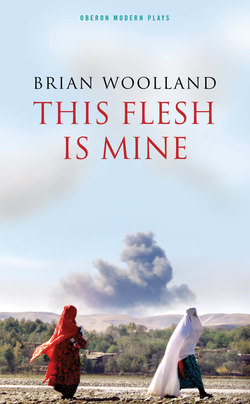Читать книгу This Flesh Is Mine - Brian Woolland - Страница 4
На сайте Литреса книга снята с продажи.
ОглавлениеThe origins of This Flesh is Mine
It is rarely easy to pinpoint where a play originates, or where specific ideas come from. But in the case of This Flesh is Mine, the starting point is very clear. In 2007, I was asked by the Panhellenic Association of Teaching Drama to run a series of educational drama workshop for Greek teachers, focusing on The Iliad. At the time it felt like carrying coals to Newcastle and I made clear that it was likely that the teachers taking part in the workshop would probably know The Iliad better than I did. The focus of the workshops, however, was to explore how such a text could be introduced to young people in a way which would stimulate curiosity and a desire to explore the text for themselves, rather than fostering the sense of inadequacy that students often feel when faced with a text such as The Iliad, which carries so much cultural weight. In every one of those workshops, the participants found new ways of exploring the material; and, whatever the work did for them, it greatly enriched the material for me. I found myself returning to The Iliad with ever-increasing fascination. On my return to the UK, I discussed with Michael Walling the possibility of developing a play very loosely based on The Iliad. And that was where it started.
At that stage I had no conception of the form that the play itself might finally take, although I knew that it would explore some of the themes of dispossession and occupation, obsession and delusion that had appeared in the workshops.
It was during those workshops that I became intrigued by a moment early in The Iliad when the goddess Até (sometimes translated as Delusion) visits Agamemnon and convinces him that he should take Achilles’ slave girl, Briseis, for his own. This is the incident which enrages Achilles and sparks the cycle of revenge which drives the action of The Iliad. The notion of self-styled ‘great leaders’ visited by Delusion seemed particularly wry and potent in the aftermath of the horrific conflicts in Iraq and Afghanistan. And although Delusion does not appear as a character in this draft of the play, her spirit is never far from the Achaean kings.
I would like to express my thanks to all those who participated in the various Iliad workshops: in Greece; at the NATD conference in Oxford; at Rose Bruford College; at Zoukak studios in Beirut, at the Refugee Youth Project, Croydon; and the Al-Hasaniya Morrocan and Arab Women Group; to Village Writers (who offered valuable comments on scenes from early drafts); to Michael Walling for his continuing enthusiasm for the project over such a long period of gestation; I am particularly indebted to the cast and all at Ashtar Theatre for advice and collaboration throughout the rehearsal process. Their contributions have been vital to the making of the play.
And above all, my special thanks to my wife, Hilary Garrett, for her love and support.
Brian Woolland
